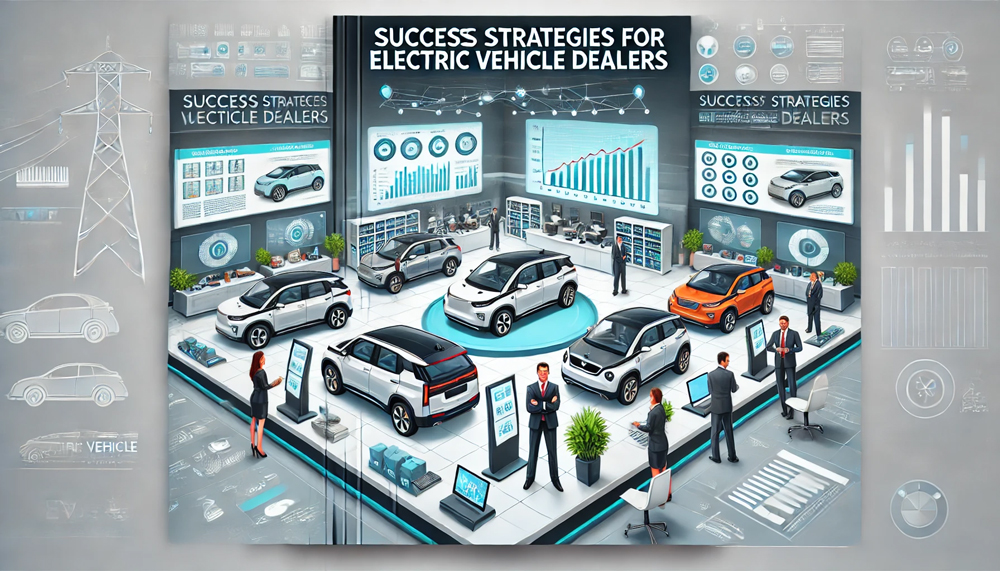The electric vehicle market is evolving rapidly, and for dealers to thrive, they must navigate this dynamic landscape effectively. Here are several critical factors that are essential for ensuring success in the EV market:
1. Understanding and Communicating the Value Proposition
Educating Customers:
Dealers must be well-versed in the benefits of EVs, such as lower operating costs, environmental advantages, and government incentives. It’s crucial to convey how EVs reduce greenhouse gas emissions, thereby helping to combat climate change. They should be able to effectively communicate these advantages to potential buyers. According to a study by the International Council on Clean Transportation (ICCT), the lifecycle emissions of EVs are significantly lower than those of internal combustion engine vehicles.
Demonstrating Cost Savings:
Highlighting the total cost of ownership is essential. This includes fuel savings, lower maintenance costs, and potential tax credits. For instance, EVs generally have fewer moving parts than traditional vehicles, leading to reduced maintenance costs. Additionally, incentives like the federal tax credit of up to $7,500 for new EV purchases in the United States can significantly lower the purchase price .

2. Charging Infrastructure Knowledge
Home Charging Solutions:
Dealers should offer guidance on home charging installation and options, which can be a significant concern for new EV buyers. This includes information on different types of home chargers, their installation processes, and potential rebates for installing home charging stations.
Public Charging Networks:
Having up-to-date information on public charging stations, including locations and compatibility, helps reassure customers about the practicality of owning an EV. Resources like PlugShare provide comprehensive maps of charging stations, which can be a valuable tool for dealers.
3. Inventory Management
Diverse Model Availability:
It is crucial to keep a varied inventory of EV models to cater to different customer preferences and budgets. This includes stocking popular models like the Tesla Model 3 and Chevrolet Bolt and being aware of new releases and upcoming models.
Supply Chain Efficiency:
Given the high demand and potential supply chain issues, dealers need to manage their supply chains efficiently to ensure they have the necessary stock available. This might involve close collaboration with manufacturers and using advanced inventory management systems to predict demand accurately.
4. Customer Experience
Test Drives:
Offering extensive test drive opportunities can help customers experience the unique aspects of EVs, such as instant torque and quiet operation. According to JD Power, consumers who test-drive EVs are more likely to consider purchasing one.
Post-Sale Support:
Providing robust after-sales service, including maintenance support and updates about new features or recalls, builds customer trust and loyalty. This could involve setting up dedicated EV service centers or training existing service staff on EV maintenance.
5. Training and Expertise
Staff Training:
Ensuring that sales staff are knowledgeable about the latest EV technology, battery management, and charging solutions is vital for providing accurate and confident information to customers. Regular training sessions and certifications can help maintain high levels of expertise.
Technical Expertise:
Having trained technicians who can handle EV-specific maintenance and repairs ensures customers receive high-quality service. Investing in specialized tools and training programs for technicians is crucial as the EV market grows.
6. Leveraging Incentives and Financing Options
Government Incentives:
Staying informed about federal, state, and local incentives for EV purchases and communicating these to customers can significantly enhance the appeal of EVs. Websites like the U.S. Department of Energy’s Alternative Fuels Data Center provide up-to-date information on available incentives.
Financing Options:
Offering attractive financing options, including leasing deals and loans with favorable terms, can make EVs more accessible to a broader range of customers. For example, some manufacturers offer special financing rates for EV purchases to promote sales.
7. Building Partnerships
Collaborations with Charging Networks:
Partnering with charging network providers to offer integrated solutions can enhance customers’ value proposition. This might include providing discounts on charging plans or integrating home charging installations into the purchase process.
Engagement with OEMs:
Close collaboration with EV manufacturers ensures dealers are aligned with the latest developments and promotional efforts. This could involve participating in manufacturer training programs and staying informed about new technologies and models.
8. Marketing and Outreach
Targeted Marketing:
Utilizing data-driven marketing strategies to target potential EV buyers, such as environmentally conscious consumers and tech enthusiasts, can increase sales. Social media campaigns, search engine marketing, and targeted email campaigns can be effective tools.
Community Engagement:
Hosting events, such as informational sessions and EV demonstrations, can raise awareness and interest in the community. These events provide opportunities for potential buyers to learn about EVs firsthand and ask questions in a supportive environment.
Conclusion
For dealers, success in the EV market hinges on a combination of educating customers, managing inventory effectively, providing exceptional customer service, and staying informed about industry developments. By focusing on these areas, dealers can position themselves as trusted sources for EVs and capitalize on the growing demand for electric vehicles. By embracing the complexities and opportunities of the EV market, dealers can contribute to a more sustainable and efficient transportation future.
